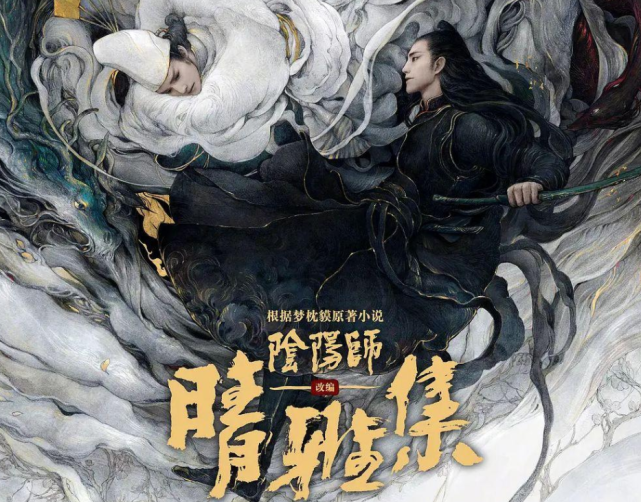After 10 days of screening and raking in a 451 million yuan ($69.85 million) as of Sunday, "The Yin-Yang Master: Dream Of Eternity," a costume fantasy movie that was allegedly plagiarized from Marvel Studios' 2016 superhero movie "Doctor Strange" has been removed from cinemas across China.
No official announcement explaining the reason has been issued. However, local news media and netizens have claimed that it was related to the intellectual property infringement accusations. This isn't the first plagiarism accusation made against director Guo Jinming.
Based on an adaptation from Japanese writer Baku Yumemakura's novel "Onmyoji," the movie was acquired early last month by Netflix with rights excluding China and is expected to be released in the rest of the world Feb. 5.
"The strong Asian aesthetics of the film might be appealing for international audiences," screenwriter and director Guo told Variety Dec. 15. "In the meantime, the story is universal and accessible to anyone." Guo initially enjoyed success as a novelist and went on to make four sequels of "Tiny Times," cumulatively earning more than 1 billion yuan at the box office between 2013 and 2015.
Right before his latest movie hit domestic screens Dec. 25 as many as 156 Chinese screenwriters, directors and producers wrote a joint letter calling Guo and another award-winning screenwriter Yu Zheng "intellectual thieves" and threatened a boycott.
"They were applauded as 'mentors' on some TV shows to give guidance to young actors, selling their 'success theories'," wrote the joint letter. "They have made a negative impact on society and set bad examples for future generations."
The letter generated buzz across domestic social media.
Zhuang Yu, a writer who signed the letter, 15 years ago filed a lawsuit against Guo for plagiarizing her novel "In and Out of the Circle" and turning it into a bestselling novel "Never Flowers in Never Dreams." The Beijing Intermediate Court ruled Guo liable in 2006 and he later compensated Zhuang 200,000 yuan. Guo refused to issue an apology.
"This mistake has been following me for over 15 years from my youth to the upcoming forties, through the time I have been criticized by mentors and netizens," said Guo in a letter posted on Weibo Dec. 31. "I'm sorry that I have been a very bad example. Please learn the lesson from me. Refuse plagiarism and respect creative writing."
Additionally, Guo also said he would compensate Zhang with all the revenues he made from the novel. In response, the original author suggested the money would be used to establish an anti-plagiarism foundation to "protect original creative authors."
Guo's letter, however, didn't respond to recent accusations about his latest movie.
"Investors usually sign contracts that include credibility clauses with directors," Feng Xiaoqing, an intellectual property law expert with the China University of Political Science and Law, told the Global Times. "If a work is found to have plagiarized another work, investors can hold infringers accountable and ask for compensation."
As of Oct. 17, China approved amendments to its copyright law, including an increase in fines for infringement and provisions for punitive damages - allowing for up to five times the calculated loss. The law comes into effect June 1.
Neither "Doctor Strange" producer Marvel Studios nor distributor Walt Disney Studios Motion Pictures has responded.





